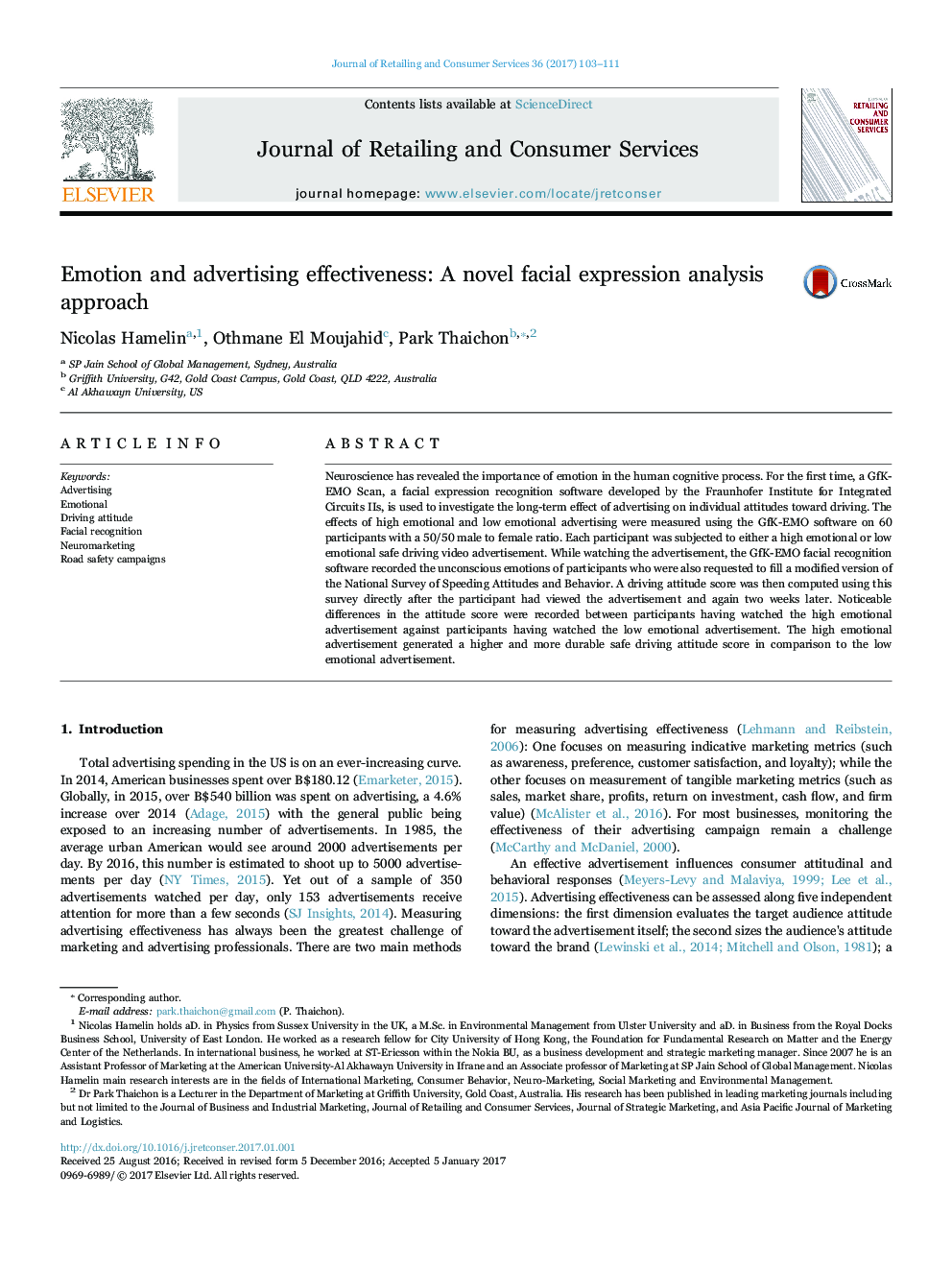| Article ID | Journal | Published Year | Pages | File Type |
|---|---|---|---|---|
| 5111299 | Journal of Retailing and Consumer Services | 2017 | 9 Pages |
Abstract
Neuroscience has revealed the importance of emotion in the human cognitive process. For the first time, a GfK-EMO Scan, a facial expression recognition software developed by the Fraunhofer Institute for Integrated Circuits IIs, is used to investigate the long-term effect of advertising on individual attitudes toward driving. The effects of high emotional and low emotional advertising were measured using the GfK-EMO software on 60 participants with a 50/50 male to female ratio. Each participant was subjected to either a high emotional or low emotional safe driving video advertisement. While watching the advertisement, the GfK-EMO facial recognition software recorded the unconscious emotions of participants who were also requested to fill a modified version of the National Survey of Speeding Attitudes and Behavior. A driving attitude score was then computed using this survey directly after the participant had viewed the advertisement and again two weeks later. Noticeable differences in the attitude score were recorded between participants having watched the high emotional advertisement against participants having watched the low emotional advertisement. The high emotional advertisement generated a higher and more durable safe driving attitude score in comparison to the low emotional advertisement.
Related Topics
Social Sciences and Humanities
Business, Management and Accounting
Marketing
Authors
Nicolas Hamelin, Othmane El Moujahid, Park Thaichon,
